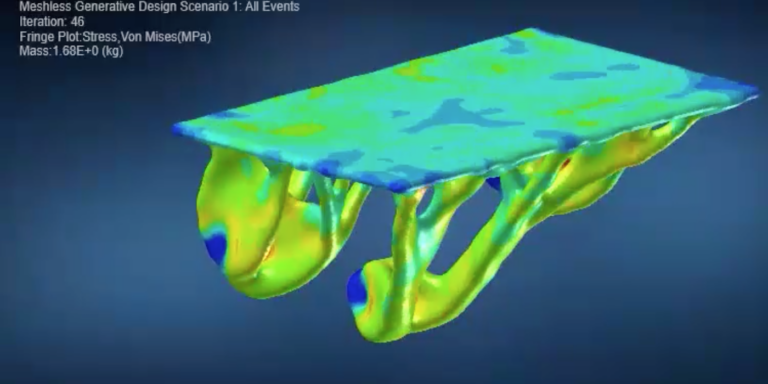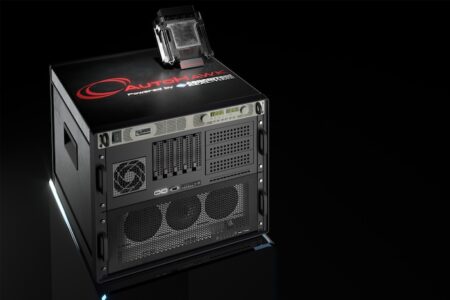MSC Software Corporation (MSC) has developed a tool that is designed to enable engineers to explore new approaches and optimise any part of a design in a single step. The company claims that the package, named MSC Apex Generative Design, will allow users to develop innovative products up to 80% faster than with conventional approaches.
MSC says the package can be used to generate lightweight and smoothed preliminary component concepts based solely on the engineering goals. This process does away with the time-consuming iterative process of eliminating unsuitable candidates, allowing engineers to apply more of their time and their expertise in exploring the design space and finding more optimal and novel solutions by fine tuning pre-vetted, manufacturing-ready designs.
According to the company, MSC Apex Generative Design enables engineers to innovate more quickly, producing the optimal design in the same amount of time it would have taken them to create, test and discard a first prototype using conventional tools and workflows. The design package can be run on a normal laptop to generate initial candidates within an hour, and produce a final design within a matter of hours.
For example, an automotive designer could build a motorcycle chassis that is 56% lighter than previous iterations, improving range while saving on fuel consumption; an aerospace engineer could redesign a product part-by-part for lightweighting, confident in maintaining the same performance and safety while improving efficiency; and manufacturers can exploit the capabilities of additive manufacturing and optimise their designs to enable first-time-right part production for entirely new products.
Thomas Reiher, director of Generative Design at MSC Software stated, “Designing an optimal product that fully exploits the available techniques is such a convoluted process today, that designers have to compromise,” adding that the software “thinks like” designers, improving parts with intelligent engineering decisions in a short time.
“Our users have reported slashing their design time by 80% by reducing the number of individual tools and interventions, automating the optimisation process and streamlining their workflows,” added Reiher.
3D printing
MSC says that the package can anticipate design issues that would otherwise require redesign much later in the process – a quality that could be important for projects involving new manufacturing practices such as additive manufacturing. 3D printing teams can use the solution as a Design for Additive Manufacturing (DfAM) tool, as it can perform topology optimisation and intelligent smoothing in a single step, producing parts with low distortion risk and ‘bionic’ printable geometries. The resulting parts are automatically designed for performance, balancing the material use with strength requirements and stress distribution.
Users can link MSC Apex Generative Design with manufacturing simulation tools, namely Simufact Additive for metals and Digimat AM for polymers, to reduce build failures and make optimal use of materials.





